There are several ways to get rid of eczema the natural way, without steroids. Eczema can be frustrating, painful, and even embarrassing. Taking the natural approach to getting rid of steroids can save you from horrible side effects, or putting chemicals in your body unnecessarily.
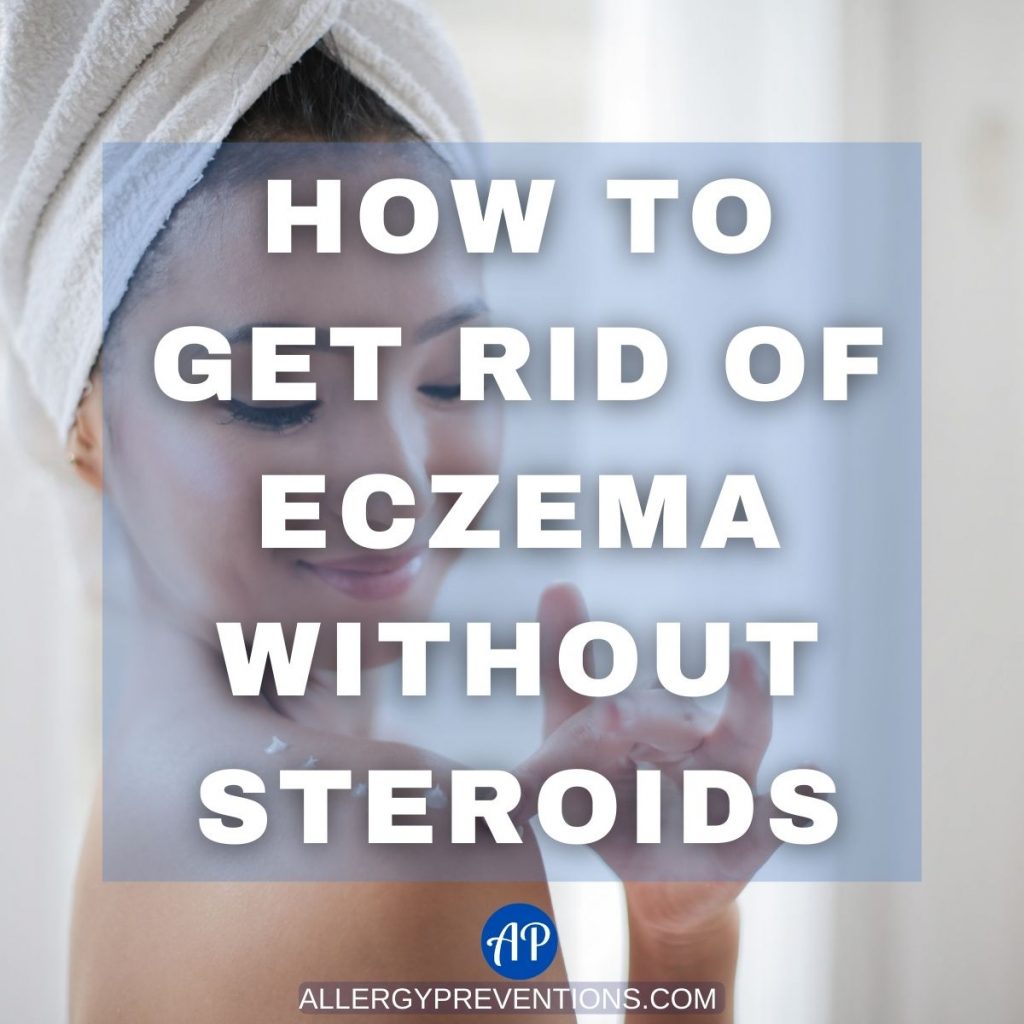
As an Amazon Associate, I may earn from purchases.
Fortunately, there are many natural ways to get rid of eczema without using steroids. Let’s explore some of the most effective natural methods.
Apply a Natural Moisturizer
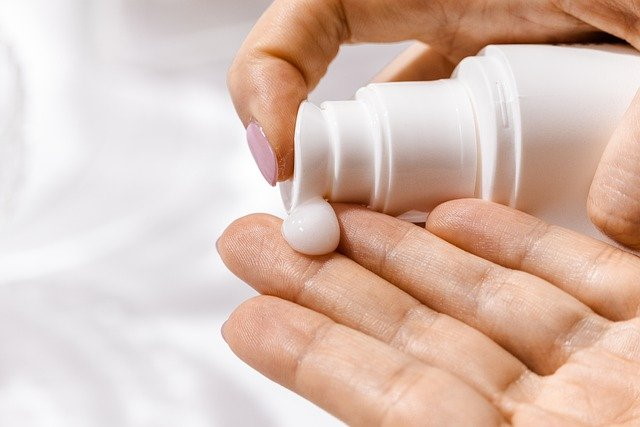
Applying a moisturizer to your skin after bathing or showering can help prevent eczema flare-ups and keep your skin looking and feeling its best. Just make sure to choose a moisturizer that is specifically designed for eczema-prone skin – otherwise, you might end up making your eczema worse.
The best moisturizers for eczema are going to be those that are all-natural, chemical-free, and unscented. Don’t be fooled by the companies that say their products are for eczema, but then they list harmful, irritating ingredients on the product label.
Consider Using a Humidifier

Eczema and dry skin are common problems, especially in the winter when the air is dry and cold. A humidifier can help to combat the drying effects of winter air by adding moisture to the air. This can help to keep your skin hydrated and reduce the risk of eczema flare-ups.
In addition, using a humidifier can also help to relieve congestion, sore throats, and other respiratory problems. So if you’re looking for relief from dry skin and other winter woes, be sure to invest in a good humidifier.
Drink Plenty of Water

Eczema is often exacerbated by dry weather, so it’s important to stay hydrated to prevent flare-ups. Drinking plenty of water each day helps to keep the skin hydrated from the inside, and can help reduce the severity of eczema symptoms.
Eat Anti-inflammatory Foods
Anti-inflammatory foods are those that contain compounds known to reduce inflammation in the body. Incorporating these foods into your diet can help naturally mitigate the inflammatory response associated with eczema.
Top Anti-Inflammatory Foods for Eczema
Incorporating some of these anti-inflammatory foods may help with relieving eczema symptoms naturally. Here is a list of the top foods to eat to ease eczema symptoms:
- Berries: Strawberries, blueberries, and raspberries are packed with antioxidants that help reduce inflammation throughout the body, including the skin.
- Ginger: Ginger is another spice with notable anti-inflammatory properties. Incorporating fresh ginger into your cooking or enjoying it as a tea can provide relief from eczema symptoms.
- Green Tea: Loaded with polyphenols and catechins, green tea has been shown to possess potent anti-inflammatory properties.
- Leafy Greens: Vegetables like spinach, kale, and Swiss chard are rich in antioxidants and phytochemicals that combat inflammation and promote skin health.
- Omega-3 Fatty Acids: Found in fatty fish like salmon, mackerel, and sardines, omega-3 fatty acids have potent anti-inflammatory properties that can benefit eczema sufferers.
- Turmeric: This vibrant spice contains curcumin, a compound known for its powerful anti-inflammatory effects.
Give Breathable Clothing a Try
Another option to get rid of eczema without steroids is by wearing breathable clothing. Sometimes the cause of your eczema is tight-fitting clothing, especially gym clothes. By wearing loose-fitting clothing you will be able to prevent sweating and irritation. Natural fibers like cotton and linen are best.
Herbal & Essential Oil Natural Eczema Remedies
Herbal remedies offer several advantages for natural eczema treatment, including anti-inflammatory, antimicrobial, and soothing properties. They are often gentler on the skin and may cause fewer side effects compared to pharmaceutical drugs.
Herbs for Natural Eczema Treatment
Certain herbs have therapeutic properties that may aid in the prevention and treatment of conditions such as eczema. Here is a list of the most commonly used herbs to treat eczema or dermatitis naturally:
- Aloe Vera: Aloe vera gel is renowned for its moisturizing and healing properties, relieving dry, itchy skin.
- Burdock Root: Traditionally used to treat various skin conditions, including eczema, due to its anti-inflammatory and antioxidant properties.
- Calendula: Known for its anti-inflammatory and wound-healing properties, calendula can help reduce inflammation and promote skin regeneration.
- Chamomile: Chamomile possesses anti-itch and anti-inflammatory properties, making it effective in soothing irritated skin.
- Lavender: Lavender oil has calming and anti-inflammatory effects, which can help alleviate eczema-related itching and irritation.
- Licorice Root: Contains compounds that have anti-inflammatory properties, which can help reduce inflammation and itching.
- St. John’s Wort: St. John’s Wort has anti-inflammatory and antibacterial properties, which may help reduce inflammation and prevent infections.
- Thyme: Contains compounds with antimicrobial properties that can help prevent infections in eczema-affected skin.
Common Essential Oils for Eczema Symptoms
Many essential oils possess properties that can help soothe irritated skin, reduce inflammation, relieve itching, and prevent infections, all of which are concerns for individuals with eczema. Here is a list of common essential oils used for eczema symptoms:
- Calendula Oil: Calendula oil is derived from marigold flowers and has anti-inflammatory, antimicrobial, and skin-soothing properties. It can help calm irritated skin and reduce redness and itching associated with eczema.
- Chamomile Oil: Chamomile oil has soothing and anti-inflammatory properties, making it beneficial for relieving itching and inflammation associated with eczema. It’s particularly gentle and suitable for sensitive skin.
- Frankincense Oil: Frankincense oil has anti-inflammatory properties that can help reduce inflammation and promote skin healing.
- Geranium Oil: Geranium oil has astringent properties that can help tighten and tone the skin, reducing the appearance of eczema-related scars. It also has anti-inflammatory and antimicrobial properties.
- Helichrysum Oil: Helichrysum oil has regenerative properties that can promote skin healing and reduce the appearance of scars. It also has anti-inflammatory and analgesic properties.
- Lavender Oil: Lavender oil has anti-inflammatory and antimicrobial properties, which can help soothe irritated skin and reduce itching.
- Myrrh Oil: Myrrh oil has anti-inflammatory and antimicrobial properties that can help reduce inflammation and prevent infections in eczema-prone skin. It’s also believed to promote skin regeneration and healing.
- Tea Tree Oil: Tea tree oil is well-known for its antimicrobial properties, which can help prevent infections in eczema-prone skin. It also has anti-inflammatory properties that may reduce redness and inflammation.
When using essential oils for eczema, it’s critical to dilute them properly with a carrier oil (such as coconut oil or jojoba oil) to avoid skin irritation.
Additionally, it’s a good idea to perform a patch test before using any essential oil to ensure you don’t have an allergic reaction.
Identify and Avoid Eczema Triggers
The best way to naturally get rid of eczema without steroids is to know your eczema triggers. By knowing your triggers, you will have the information you need to avoid those triggers and stop your eczema for good.
Some common triggers include dry skin, stress, certain fabrics, fragrances, and even hot or cold weather. Some triggers you cannot control, like age, genetics, and hormones.
Keep an Eczema Journal

If you’re not sure what your triggers are, keep a journal of your flare-ups and note anything that seems to be associated with them. Once you identify your triggers, you can take steps to avoid them or manage them better.
For example, if dry skin is a trigger, you might use a moisturizer more regularly or switch to a gentler soap. If stress is a trigger, you might practice some relaxation techniques or try to find ways to reduce stress in your life.
Once you are aware of your eczema triggers, avoiding those triggers will help get rid of eczema without steroids. As with anything related to eczema, be sure to talk to your doctor about your triggers and how best to manage them.
Lower Your Shower Temperature

Hot showers may feel great, but they can be bad for your skin. The hot water can strip away your skin’s natural oils, leaving it dry and irritated. If you have eczema, this can trigger a flare-up. So try to keep your showers cool or lukewarm, and use a gentle soap or body wash.
Manage Stress Levels
To effectively cope with stress and ease eczema symptoms, integrating relaxation methods into your daily routine is crucial. Activities like mindfulness meditation, deep breathing exercises, and yoga can soothe the mind and lower stress, thus lessening its effects on the skin.
The most effective stress management for me involves physical exercise such as running or cycling outdoors. Being in nature seems to be the most potent natural remedy for me.
Natural Antihistamines That May Get Rid of Eczema
High levels of histamines in the body can exacerbate eczema symptoms, leading to increased itching and inflammation. These natural antihistamines can help ease eczema without the use of steroids.
Bromelain
Bromelain is an enzyme found in pineapple that has anti-inflammatory properties. It may help alleviate eczema symptoms by reducing inflammation and itching.
Butterbur
Butterbur (Petasites hybridus) is a perennial plant native to Europe and parts of Asia. It has been used in traditional medicine to treat allergies and migraines. Butterbur extract contains compounds called petasins, which have been shown to have antihistamine and anti-inflammatory effects.
Ginger
Ginger is a root spice known for its anti-inflammatory and immune-modulating properties. It contains bioactive compounds that may help alleviate allergy symptoms by inhibiting the release of histamine from mast cells.
Omega-3 Fatty Acids
Omega-3 fatty acids, found in fish oil and flaxseed, have anti-inflammatory properties. They may help reduce itching and inflammation associated with eczema by modulating the immune response.
Quercetin
Quercetin is a flavonoid found in fruits and vegetables, known for its anti-inflammatory properties. It acts as a natural antihistamine, helping to reduce histamine release and inflammation.
Stinging Nettle
Stinging nettle (Urtica dioica) is an herbaceous plant that has been used traditionally to relieve allergy symptoms. It contains compounds that interfere with the production and release of histamine, making it an effective natural antihistamine.
Vitamin C
Vitamin C is a powerful antioxidant found in many fruits and vegetables, including oranges, strawberries, kiwi, and bell peppers. It has been shown to have antihistamine properties and may help reduce allergy symptoms by reducing histamine levels in the body.
Regularly Wash Your Hands
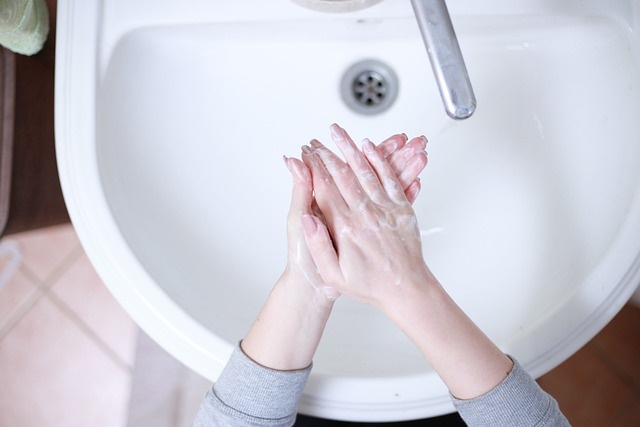
Wash your hands regularly, and avoid touching and scratching your eczema. This will help to prevent the spread of bacteria and irritants that can trigger a flare-up. Also, proper handwashing helps prevent you and your loved ones from getting sick. Handwashing is a win-win.
For those who suffer from hand eczema, this can be tricky as too much washing can trigger a flare-up. Find a high-quality, hypoallergic soap to combat hand eczema flare-ups.
Take a Moisturizing Oatmeal Bath

Oatmeal baths are a great way to relieve eczema naturally. The oats help to soothe and moisturize the skin. Make sure to use colloidal oatmeal, which are finely ground oats. Add one cup of oatmeal to a bathtub of warm water and soak for 15-20 minutes.
Pro Tip: You do not want the oats to clog the drain. Place the oats in a mesh bag, or pantyhose to keep the oats secure.
Try Wet Wrap Therapy
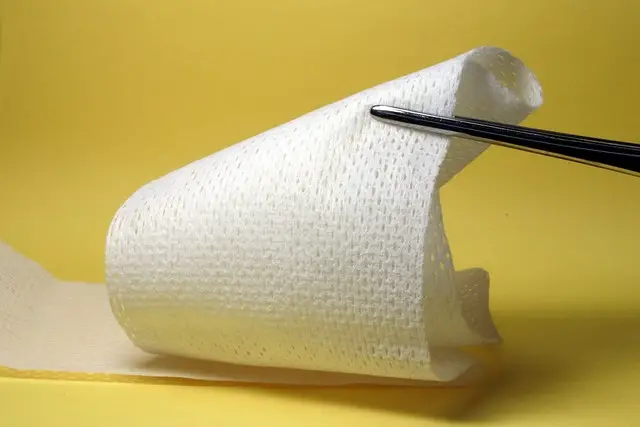
Wet wrap therapy is a treatment method that uses water to soothe and protect the skin. According to NationalEczema.org, these are the steps to properly applying a wet wrap.
- Moisten: Wet bandage dressing in warm water until it is slightly damp.
- Wrap: cover the affected area with the wet dressing.
- Apply: Place a dry dressing over the wet dressing.
- Cover: If needed, put on clothing to secure the bandages.
- Wait: Leave the bandages on for several hours, or overnight.
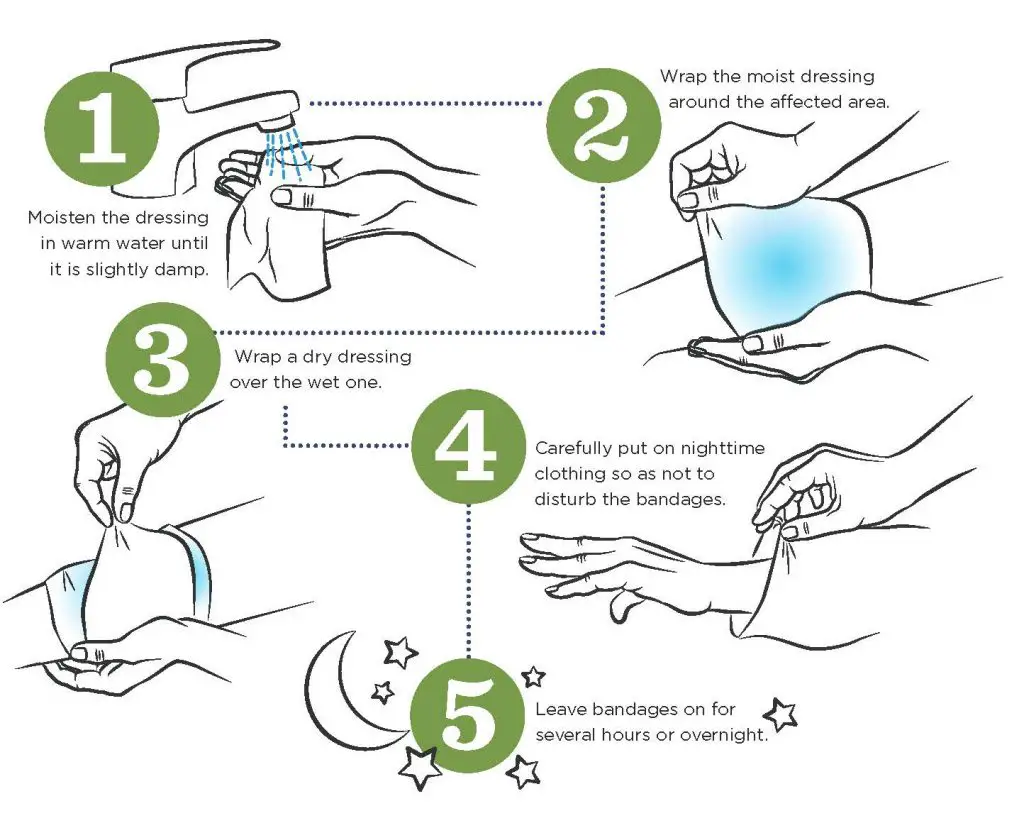
Ultraviolet Light Therapy

Ultraviolet light is an effective treatment for eczema without the use of steroids. UV radiation helps to improve the symptoms of eczema by killing bacteria on the skin, reducing inflammation, and helping to restore the skin’s natural barrier function.
In addition, UV radiation can help to increase the production of vitamin D, which is important for overall health. Ultraviolet light therapy is often recommended by medical professionals as a natural treatment for eczema.
Use Hypoallergenic Products
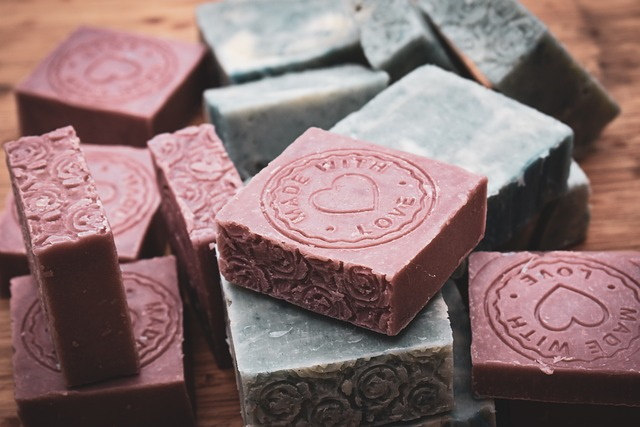
One of the biggest impacts you can make on your health and eczema is to switch to hypoallergenic products throughout the home. Choosing gentle, hypoallergenic, products for your skin, hair, clothes, and cleaning can make a big difference.
Read the Labels
At the bare minimum, swap out anything that is scented or has “fragrance”, or contains SLS/SLES, or parabens. This is just the beginning of ingredients you should avoid if you have eczema but is a good start.
Don’t Read the Labels
If you want to save yourself time from researching products, find a reputable and trustworthy company that you know only sells chemical-free, hypoallergenic products.
We use Pure Haven, because we literally do not have to read the labels, and we know the product is safe for our skin, and for our health. I encourage you to check out their product line, you won’t be disappointed!
Also, all the research is done for you on these products as well, check them out.
- Best Hypoallergenic Soap Bars
- Top Hypoallergenic Dish Soaps for Eczema
- 15 Best Dermatitis Moisturizers
Key Takeaway
To see an improvement in your eczema, you may need to explore and combine multiple natural remedies. By sticking with a holistic approach and being consistent in your efforts, you are more likely to see improvements in your eczema over time.
Next Up Check Out
